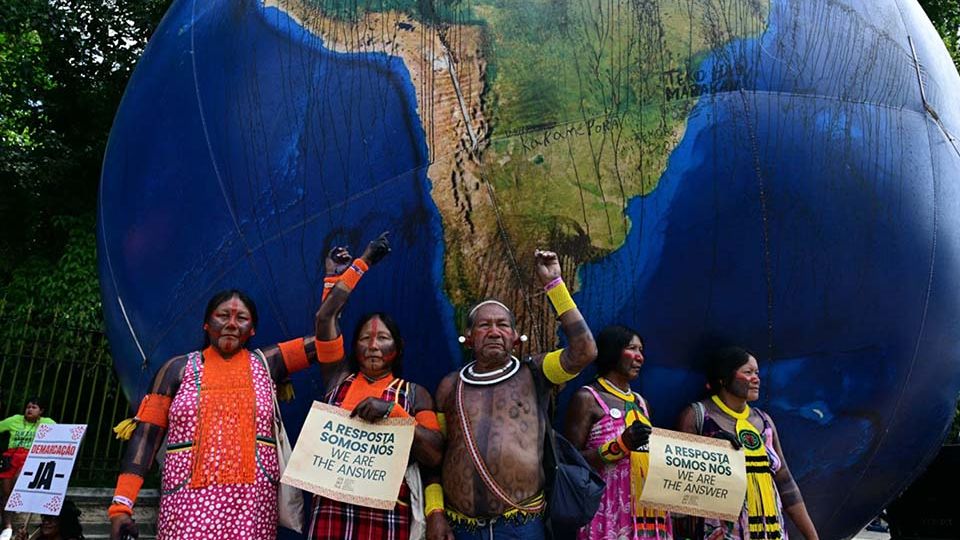November 20, 2025
JAKARTA – With much of the country suffering from the impacts of global heating, verging on boiling, citizens are rightly expecting the government to deliver a genuinely ambitious pledge to mitigate the impacts of the climate crisis at the United Nations Climate Change Conference in Brazil, dubbed COP30, now underway until the weekend.
Instead, COP30 has revealed another subpar performance from the Indonesian delegation on climate issues in Belém, with members of the contingent strenuously promoting what experts and activists call “false” climate solutions.
During the opening ceremony of the Indonesian Pavilion at COP30, the delegation’s chair Hashim Djojohadikusumo, a tycoon with extensive interests in mining and agribusiness, and brother of President Prabowo Subianto, promoted a vision of making Indonesia a global center for a “high-integrity” carbon market. He also announced a goal of US$7.7 billion revenue from carbon trading.
On the surface, carbon trading mechanisms may look useful to help protect forests, as the tradable carbon credit depends on forested areas that work well in absorbing emissions and regulating climate. However, such a market-based solution is often inequitable for indigenous communities, whose work to preserve the environment is rarely compensated fairly. Some carbon forest projects have led to conflicts as their land overlaps with areas where these people live.
Hashim’s promotion of carbon trading at COP30 is just another example of the government prioritizing short-term profit over addressing the actual crisis, an environmental predicament exacerbated by emissions from fossil fuels and deforestation for so-called strategic projects.
However, the unconvincing display at COP30 should not be a surprise. Indonesia has already demonstrated an inadequate commitment to cutting greenhouse gas emissions in its latest climate pledge submitted to the UN, known as the nationally determined contribution (NDC).
The latest NDC, which was finally submitted after months of delays and missed deadlines, showed that Indonesia will release more greenhouse gas emissions until 2035. The energy sector is expected to be the main contributor, in line with official documents suggesting the country will continue relying heavily on fossil fuels like coal, rather than demonstrating ambition in expanding renewables. Indonesia’s reliance on fossil fuels is also demonstrated in Brazil, where dozens of COP30 delegation members are known as fossil fuel industry lobbyists.
The weak climate commitment from Indonesia makes the country complicit in humanity’s failure to halt the global temperature rise by 1.5 degrees Celsius in the next few years, as warned by UN Secretary-General António Guterres. Failing to meet the threshold will unleash a calamity far worse than predicted, potentially leading to millions of Indonesian lives lost and billions of rupiah wasted dealing with climate-related damages.
The UN climate summit has been criticized for being hijacked by fossil fuel industries and rich nations that do not want to be ambitious in mitigating global heating anyway. But that does not mean Indonesia should follow their footsteps.
This summit should instead become a stage where Indonesia rises up to its moral duty, leading Global South nations in pushing rich countries to help and pay for mitigation and adaptation efforts.
The government must not forget the people, especially marginalized groups like fisherfolk and indigenous communities, who are the first to suffer the consequences of global heating. Every proposal on climate action should put these people at the heart of it.
We agree money is important to support climate mitigation and adaptation works. But so does a strong climate plan, which will invite funding to phase out fossil fuels, the main driver of global heating, while expanding renewables to power up the country, among other efforts.
Conversely, selling false solutions will only provide fleeting capital that offers no protection when cities are drowning from rising sea levels or when people fall ill from living in a hotter world.


